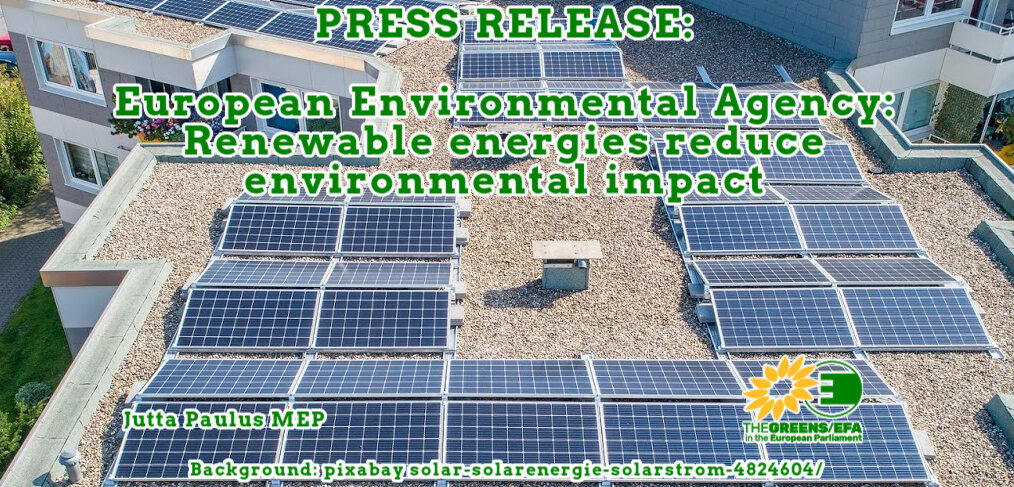
PRESS RELEASE: European Environmental Agency: Renewable energies reduce environmental impact
PRESS RELEASE, Monday, 18th of January 2020 – Brussels
European Environmental Agency: Renewable energies reduce environmental impact
The European Environment Agency (EEA) has just published a study on the environmental impact of the increasing use of renewable energies. For this purpose, the EEA conducted a detailed environmental assessment for the years 2005 to 2018. Air and water pollution in the form of particulate matter, eutrophication and acidification are decreasing due to the increased use of renewable energies. However, the use of biomass and bio waste in particular is increasing water pollution and land use.
The European Environment Agency (EEA) has just published a study on the environmental impact of the increasing use of renewable energies. For this purpose, the EEA conducted a detailed environmental assessment for the years 2005 to 2018. Air and water pollution in the form of particulate matter, eutrophication and acidification are decreasing due to the increased use of renewable energies. However, the use of biomass and bio waste in particular is increasing water pollution and land use.
The share of renewable energy power generation in the EU is currently 34 percent and has almost doubled since 2005. This has led to positive impacts worldwide in the fight against climate change, acidification and eutrophication of water and soil, and particulate matter pollution.
The EEA recommends more targeted measures to further reduce negative environmental impacts while accelerating the expansion of renewable energy. These measures should aim to reduce the environmental impact of raw material extraction and production processes, including in the supply chain. Energy efficiency and resource efficiency must also be further increased. This is because although renewable energy sources cause negligible emissions during energy production, emissions and pollutants are produced during manufacturing.
Hierzu kommentiert die grüne Europaabgeordnete Jutta Paulus:
“Renewable energies not only protect our climate, but also our planet as a whole. No other energy sector has such positive consequences for the environment, nature and health. It is nevertheless important that the European Environment Agency showed today what we must do in order to further improve the environmental balance of renewable energies.
I call on the European Commission to define binding measures in the upcoming amendment of the Energy Efficiency Directive and in the Circular Economy Package to further minimize the negative impact of renewables on the climate and the environment. In the production of the plants as well as in the supply chains, the consumption of resources must be minimized and the release of toxic substances must be avoided at all costs.
Thanks to the increased use of renewable energy, climate and environmental impacts have decreased significantly. Unfortunately, the burning of biomass and biowaste results in increased land use and water pollution. It is intolerable that member states are cutting down forests to boost their carbon footprint. That’s why we need science-based targets for sustainable biomass use.
The European Environment Agency warns that we will not manage to become climate neutral by 2050 if the national climate and energy plans of the EU member states are not adequately adjusted. I expect the European Commission to propose a minimum price for emission allowances and a significant volume reduction as part of the revision of the EU ETS system due this year.”
Jutta Paulus is available for questions and interviews.
Click here for the EEA briefing: https://www.eea.europa.eu/themes/energy/renewable-energy/eu-renewable-electricity-has-reduced
